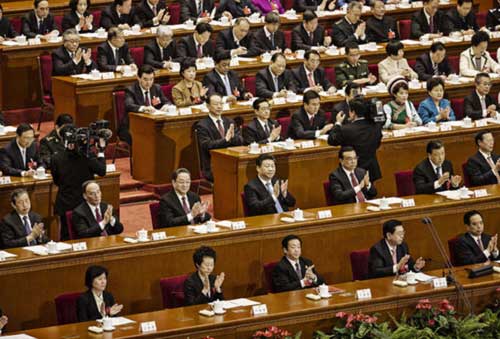The Order of the President No. 54 approved the Law on Promotion of Film Industry in China on Nov. 7, which mandates that any films that are created, projected and distributed have to be sensitive towards Chinese politics and history. This law was finalized at the Standing Committee of 12th National People’s Congress’s 24th Session.
The law will regulate films’ content because it states that no local film can discuss national secrets, infringe on sovereignty or national integrity, endanger national security or advocate for terrorism. Furthermore, any mention of Tibetan or Taiwanese independence or any other taboo political topics is banned.
The law will not only regulate the content of films, but it will regulate time slots and the number of screenings movies will have. Domestic films must be more than two thirds of the sum of the length of films that are being screened. This mandate is just one of many previous guidelines China has created, seeing as the Chinese government has previously restricted its own market to solely 34 international movies per year. This was done in order to promote revenue, which the Chinese government has recently been lacking.
In 2015, Chinese film ticket sales augmented by 49 percent, but as of October 2016, the growth rate has shrunk down to 4.7 percent. Over the past few years, multiple local production companies and distributors have been caught mass-buying tickets to their own films, manipulating the markets. The new Order of the President No. 54 details severe punishments for box office fraud, including fines of up to 500,000 yuan, or even more, if the illegal revenue exceeds that sum, in addition to possible suspensions or bans. In order to further increase revenue, the new law also encourages financial institutions to offer loans to the film industry. It also states that local governments should ensure land usage for movie theater construction
This law applies to movies that are co-produced with Chinese filmmakers, but does not apply to independent films because independent films are banned within China. Article 9 of the law additionally states that actors, film practitioners and directors must also adhere to the new legislation.
The State Administration of Press, Publication, Radio and Television will be responsible for enforcing the law itself. SAPPRFT also delegated the responsibility to municipal and provincial administrations. For example, it is establishing a professional ethics committee meant to guide organizations to practice core socialist values.
In the past, the sentiments that catalyzed the creation of this law have affected the film industry. For instance, Chinese director Vicki Zhao removed Taiwanese actor Leon Dai from her film, “No Other Love,” because he had allegedly voiced support for Taiwanese independence from China. Similarly, Brad Pitt was once considered unwelcome to any Chinese films or films distributed in China because he made an appearance in “Seven Years in Tibet” in 1997. Consequently, this law only formalizes previously formed sentiments.
This Chinese government will put the law into effect on March 1, and according to Chinese news agency Xinhua, Chinese authorities will participate in a public briefing regarding the new law before then.







